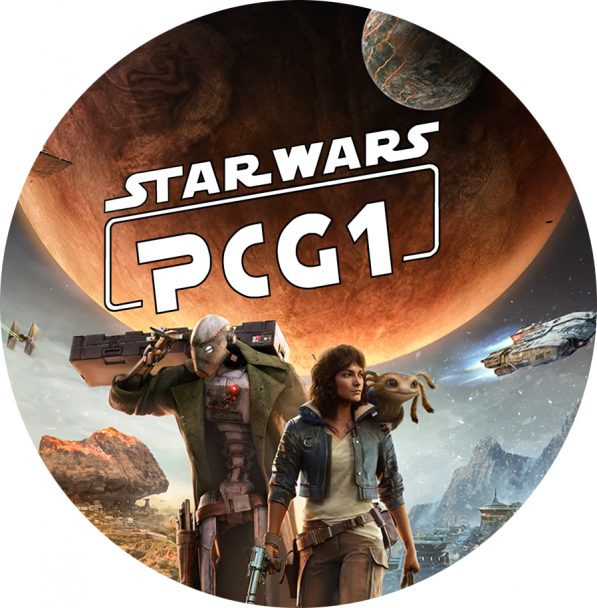“I’m trying to think. I grouped once”, Hines says. “Once. Otherwise, I just like … I like going out by myself.”
During an interview with Bethesda’s Senior Vice President of global marketing and communications Pete Hines at Gamescom this year, I ask if he’s getting sick of talking about Bethesda’s position as the saviour of the single-player experience by now, several months since its ‘save player one’ campaign. “I mean, a little,” he says. “But single player is part of who we are. We’re also the folks that make Elder Scrolls Online. We make Quake Champions. We make Elder Scrolls: Legends. But single player is part of who we are.”
Bethesda also makes Fallout 76, the first Fallout to be a shared-world experience. Somewhat unsurprisingly, it’s one that Hines plays solo.
“I’m trying to think. I grouped once”, he says. “Once. Otherwise, I just like … I like going out by myself.”
Fallout 76 promises to be a flexible experience. While playing with friends is the primary focus, Hines says it has something to offer those who like the moody solo exploration of previous Fallouts. “I just go out and explore,” he says. “I decide whether I’m going to try and do some big quest or a personal quest like putting a scope on a rifle I just went through the trouble to repair…I’m in this world where I’m just trying to survive, and I feel like I’m alone. I feel like I’m playing Fallout by myself.”
The one time Hines did group up – with Todd Howard, of course – 76 still catered to his lone wolf tendencies. He tells me of a moment when he diverged from his group to pursue something by himself and noticed on his map that everyone else had quietly done the same. “ It’s not like grouping up means all four of us have to walk around the map together and do stuff. The game is like, ‘look, just do whatever you want. If he decides to go off here and start base building, he’s doing quests…the game doesn’t care.”
It feels like playing Fallout as we know it, in other words. “It’s kinda loose and fluid, and whatever you want to be, as opposed to no, you’re all together, so you can’t be more than a hundred feet from each other at any given point. I don’t know, that’s what it feels like. It feels like a Fallout game…that you’re playing with your friends.”
Fallout 76 is not an easy game to define, even in a post-Destiny world. People are desperate to categorize it, Hines tells me, but it doesn’t neatly fit into any one box. “If you just try and take any game concept and say, “So, 76 is like this?” I promise you you’re wrong. It’s not. I’ve played the game. I know.”
76 is a monument to Bethesda’s openness toward its developers’ ideas, rather than forcing them to fill in the gaps in its portfolio. Still, there’s no denying Fortnite, so I ask Hines if there’s pressure to bend towards current trends.
“This is not new,” he says, referring to the current popularity of the battle royale genre. “Remember that massive Facebook gaming trend? Everybody and their sister were running towards that. I got to get games up on Facebook because that’s where the money is… there have been all kinds of stuff like that at different points. They come and they go.”
Trends are hard to navigate, he continues, because it’s impossible to tell which ones are going to stick around and which ones are not. “It just doesn’t seem prudent to go chasing after any of them at any particular moment. It’s more like do you have a developer who has a good idea that sound interesting in a way that we think will be unique or different or special. If so, cool, let’s try it. If not, then what are we doing?”
This is not to say Bethesda ignores the ever-evolving landscape, and Hines says that its approach to single-player in particular has moved away from the single value proposition of ‘replayablity’. “We have a joke in the office. I have banned the word replayable because that’s not a feature. Every game is replayable. Tetris is replayable. Every game can be replayed from the beginning. That’s not unique. That’s not a feature.”
Instead, he wants players to feel a sense of value when they make the purchase. What is going to give the player that feeling of value if they buy this thing? How do we show them all the stuff they can do and how long they can play it for? “It’s an evolution of thinking.”
Swinging back to Fallout 76’s undefinable nature, Hines says that in the face of the impending beta, all Bethesda can do is talk about and level set expectations as best as it can.
“It’s interesting and exciting, but I’m also going into this having done this enough to know this is definitely not going to go perfectly. There’s just no universe…nobody’s ever done it and like, “Oh, zero problems. There’s not a single thing that went wrong.” We just have to be ready for that. That’s in part what the beta is. Break it Early, Test the Application. It’s a joke, but you need to break it early. We have to find what problems we can find, and then fix it and figure out if the processes that we put in place to fix it hold it. If not, we have to change those and do it again. We need you to break something else.
“I think we are on the right course, and we’ll be prepared as we can be, but no battle plan survives contact with the enemy. Ours certainly isn’t going to either, but we are fully aware of what we signed up for, are committed to we’re going to be quick to respond, quick to adapt, and do all the things we think we need to make it a great game.”
Lucy O’Brien is Games & Entertainment Editor at IGN’s Sydney office. Follow her on Twitter.

